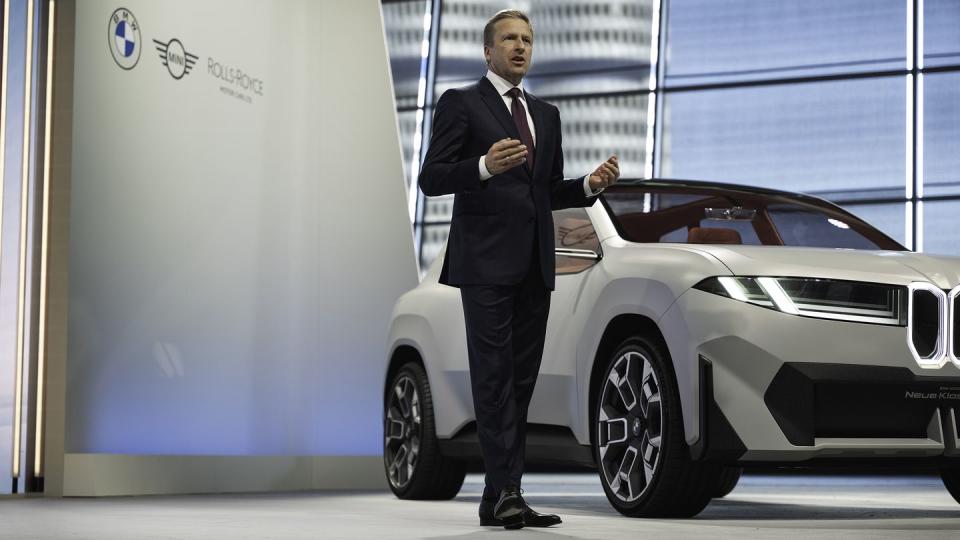BMW Spells Out EV Approach as Neue Klasse Looms

Chairman of the Board of Management of BMW AG Oliver Zipse reaffirms the automaker's commitment for battery-electric vehicles to represent about half of the Group's deliveries by 2030.
In 2023, BMW delivered 375,000 BEVs globally, representing an almost 75% hike over 2022.
BMW intends to offer a choice of four powertrains in some models in the coming years, including the 5-Series, hedging its turn to electrification.
A number of automakers are pumping the brakes on their electrification strategies, only few years after forecasting EV dominance by the end of the decade. In fact, some automakers have predicted we are in the early stages of a plateau of sorts, where EV sales will level off. But this plateau could be very different based on region.
Fears of slowing EV demand have already caused some price wars earlier in 2023, as well as production cuts at Ford and other automakers, amid a continued string of EV startup bankruptcies.
How is BMW adjusting?
"By 2030, all-electric vehicles should account for about half of our deliveries," said Chairman of the Board of Management of BMW AG, Oliver Zipse, in a message to shareholders at the automaker's annual meeting. "We remain committed to this goal and are steering the ramp-up in line with demand. We will stay flexible—even well into the 2030s."
Indeed, BMW was not among the automakers that set a concrete timeline to go EV-only, cognizant of the continued demand for gas-engine vehicles as well as plug-in hybrids. And it is the latter that has been seeing greater demand over the past year for a number of automakers, as EV demand has appeared to cool off.
"With us, everyone can find the right drivetrain to suit their needs. Anything else would be unwise from a business perspective," Zipse added.

The BMW 5-Series sedan is a prime example of this approach—the automaker offers each in gas, diesel, PHEV, and battery-electric form. In fact, BMW anticipates that the PHEV variant alone could account for approximately 20% of 5-Series sales, at least in Europe.
If there is a suspected slowdown in EV demand, BMW hasn't seen it thus far. Zipse noted that in 2023 alone the automaker delivered 375,000 BEVs globally, representing an almost 75% hike over 2022.
And the automaker isn't far from the debut of the first Neue Klasse EVs, with BMW having staked quite a bit on this new generation of electric and electrified models that will follow the i3, i8, i5, and i7 that we've seen over the past decade.
Zipse sounded optimistic about demand for BEVs from BMW Group brands continuing to grow in the coming year.
"We expect to see a slight increase in sales, compared to the previous year, as well as a significantly higher percentage of all-electric vehicles," Zipse said.
When it comes to the European market, Zipse also sounded a note of caution regarding planned tariffs against Chinese EV makers that have entered the market.
"Protectionism triggers a spiral effect: Tariffs lead to new tariffs, with protectionism rather than cooperation," Zipse said, after noting that some 20% of BEV sold in Europe in 2023 came from China.
Still, the rise of EVs from China is expected to dominate the conversation in Europe and in the US in the near future, as exports from the Middle Kingdom continue to offer stiff competition to a number of European automakers. Challengers to BMW's electric models are already being sold across the Atlantic amid continuing growth in demand in key segments.
So it's not just Tesla that BMW will have to worry about in Europe as its EV momentum continues.
Will Chinese automakers be able to obtain a significant share of the luxury EV market in Europe in the coming years? Let us know what you think in the comments below.

 Yahoo Autos
Yahoo Autos 